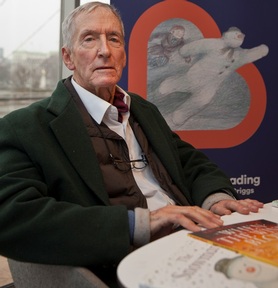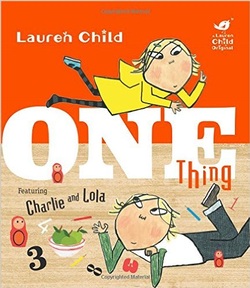Profile: Montessori chief gives up on dream of Montessori primary schools after finding ‘levels of resistance’ too much
In an exclusive interview with daynurseries.co.uk, Philip Bujak, chief executive of The Montessori St Nicholas Charity, has revealed he has given up on his dream of setting up Montessori state funded primary schools.

Talking about his plans for the Montessori movement in the UK, Mr Bujak said: “As for primary schools, given the levels of resistance this may be something I pass on to my successors to deal with.”
Mr Bujak was behind a deal back in 2005 with Manchester City Council to create the first ever state Montessori school.
The transformation of Gorton Mount primary school into a Montessori school, which had seen six headteachers in seven years and two-thirds of its children on free school meals, was a resounding success. There was a 20 per cent improvement in Year 6 SATs results and Ofsted, found the school ‘makes a real difference to pupils' lives and aspirations’.
“The trustees and I responded to a plea from the school to introduce Montessori as a last chance to save a failing school. It was a risk for them and a risk for us. Seven years on, the Montessori methodology has completely transformed the school its management and rejuvenated the motivation and ambition of teachers.”
After its success, Montessori St Nicholas Charity, which supports the Montessori movement in the UK, hoped to replicate this in other state primary schools.
Mr Bujak, who is also chief executive of the Montessori Schools Association, said at the time that they were working towards the “expansion” of the primary school project”.
However now he says “sadly, we have found it almost impossible to replicate this success with other state primary schools” as there has been too much resistance.
The Montessori movement began in the slums of Italy but with alumni such as Prince William and Prince Harry plus the founders of Google, Amazon and Facebook, it has become very much the preserve of the more moneyed.
Mr Bujak would like to see the movement returning to its roots and giving everyone, not just the privileged, access to a Montessori education.
One of the aims of the charity is to have a Montessori trained specialist in every primary school in the country by 2020. He is also on the hunt for partner nurseries to trial the Montessori approach in disadvantaged communities.
Philip Bujak is very much a mover and a shaker. Ten years ago, he was appointed head of The Montessori St Nicholas Charity. During that time he founded the Montessori Schools Association, which now supports nearly 700 Montessori nurseries and schools, and set up the Montessori Evaluation and Accreditation Board (MEAB). He was also responsible for the purchase of Montessori Centre International, the largest Montessori training college in Europe.
Mr Bujak is outspoken and unafraid to speak out, claiming “successive generations of young children have been betrayed by successive governments who are too frightened to allow individuality, individual development, and the voice of the individual to pollute the classroom”.
Prior to Montessori, he spent eight years as deputy headmaster at Langley School for Boys in Norfolk and ten years as headmaster of Stover School for Girls in Devon. He is extremely critical of the UK’s education system saying: “In many respects this country remains entrenched in its Victorian approach to education, symbolised by rote learning, league tables, class room control and intimidation – both of teachers and pupils.”
It was in his last job as head of a girls independent school, that he came into contact with the Montessori method after employing Montessori trained teachers in the prep school.
He found “there was something distinctly different about their presence in the classroom and their influence over the way children learnt and behaved. When I decided that I did not want a second headship, I was fortunate enough to be approached by Montessori and thus this seemed like serendipity that I join them.”

“Initially, the role demanded strategic planning and organisation to bring the Montessori movement together. So, at that stage, my interests were in the challenges of a diverse organisation rather than childcare specifically. Ten years on, I am committed to trying to unify the sector in a similar way as it is only through unified objectives, symmetry of ideals and a single voice that the education of the very young can be heard.”
Montessori nurseries do not have to be accredited to call themselves Montessori. It was because of this that Mr Bujak pushed for the accreditation programme to introduce a form of quality control as Montessori is not a trademark and schools can vary dramatically in terms of standards. Any school with a Montessori-qualified teacher which adheres to the philosophy and ethos of Maria Montessori can apply for Montessori Accreditation.
“It is important to distinguish between accredited Montessori schools and non-accredited ones. Within the sector, we have many usurpers and poor examples of Montessori practice. We can do nothing about this. Even the Government refuses to support our drive for the recognition of professionally managed and pure Montessori settings.
“What I can say about accredited Montessori nurseries is that they are unique in that the entire environment is dedicated to allowing the child to learn at his or her own pace and as an individual. This means staff follow children in what they can and cannot do rather than the other way around.”
He believes “formal class teaching holds back the brightest and intimidates the weakest” and says: “I have learnt this lesson sadly many years after I finished teaching. A Montessori nursery is a haven of individual creativity, both intellectually, socially and emotionally, this is why Montessori children are often so much more advanced than their peers when they enter state education.”
Earlier this year, the Government published its ‘More Great Childcare’ document with controversial plans to reform the early years sector. One of these reforms was to increase ratios for staff and children. After strong opposition from parents, early years practitioners and a number of prominent politicians, the Government backed down. Mr Bujak calls the U-turn “inevitable” and says: “Sadly, this was another example of Victorian values where not only should children be seen and not heard but also adults working within the sector. I fully appreciate the need to get people back to work and to maximise the return on taxpayer’s money. However, this was not the best way of achieving these aims.”
Another element of the reforms is a requirement for nursery staff to have Maths and English GCSE and the introduction of Early Years Teachers. However there has been concern over the Early Years Teachers as they will not be given the same status as primary and secondary school teachers as they will not have Qualified Teacher Status (QTS).
Mr Bujak calls these reforms “piecemeal attacks on a workforce that is in fact far more qualified and competent than it has ever been”.
He says: “Whilst it is important to have a competent intellectual level to be a teacher, this does not mean that experience, personality and strength of character are not more important. The way successive governments treat education generally is to tamper and tinker – I am in favour of a manifesto across parties that does not allow individual ministers to mess up what has been achieved before.”
As well as his work for Montessori, Mr Bujak has been involved in a number of charity projects and has written a couple of history books. He is very keen to create enough time to go back to writing and says “I have a number of stories to tell and I am also working closely with a friend on some film treatments which has been very exciting. Every day creates a new opportunity and I have always been fortunate to have been asked to do what I enjoy”.
In terms of Montessori, his plan is “to carry out the trustees’ strategic manifesto, which is to continue to seek out the best Montessori schools and accredit them and to distance ourselves from those who merely use the name. At the same time I look forward to linking with an increasing number of community partners – reaching out to challenged areas anywhere in the UK that sees a Montessori approach as being something they want to try. As for primary schools, given the levels of resistance this may be something I pass on to my successors to deal with.”
Interesting Facts
What was your first job: If you don’t count the army, it was as assistant teacher of history and religious studies at Langley school in Norfolk
What is your favourite book: My life has been so busy that I have yet to find my favourite book
What is your favourite film: The Searchers with John Wayne
What is your favourite piece of music: Chopin piano concertos no 1 and 2
What has been the best present you have received: My four children
What was your last holiday: Very funny
Latest Profiles News
 03-Oct-17
Nursery founder reveals secrets to an 'outstanding' childcare career
03-Oct-17
Nursery founder reveals secrets to an 'outstanding' childcare career
 09-Feb-17
Children's writer and illustrator Raymond Briggs wins lifetime achievement award
09-Feb-17
Children's writer and illustrator Raymond Briggs wins lifetime achievement award
 16-Oct-15
Charlie and Lola author reveals why she chose a Montessori nursery for her daughter
16-Oct-15
Charlie and Lola author reveals why she chose a Montessori nursery for her daughter
 04-Feb-15
'Oral storytelling is one of the most important things you can do with a child', says children's author Emma Chichester Clark
04-Feb-15
'Oral storytelling is one of the most important things you can do with a child', says children's author Emma Chichester Clark
 16-Dec-14
Profile: 'We have never turned away a child with special educational needs,' says Kiddi Caru SENCO
16-Dec-14
Profile: 'We have never turned away a child with special educational needs,' says Kiddi Caru SENCO